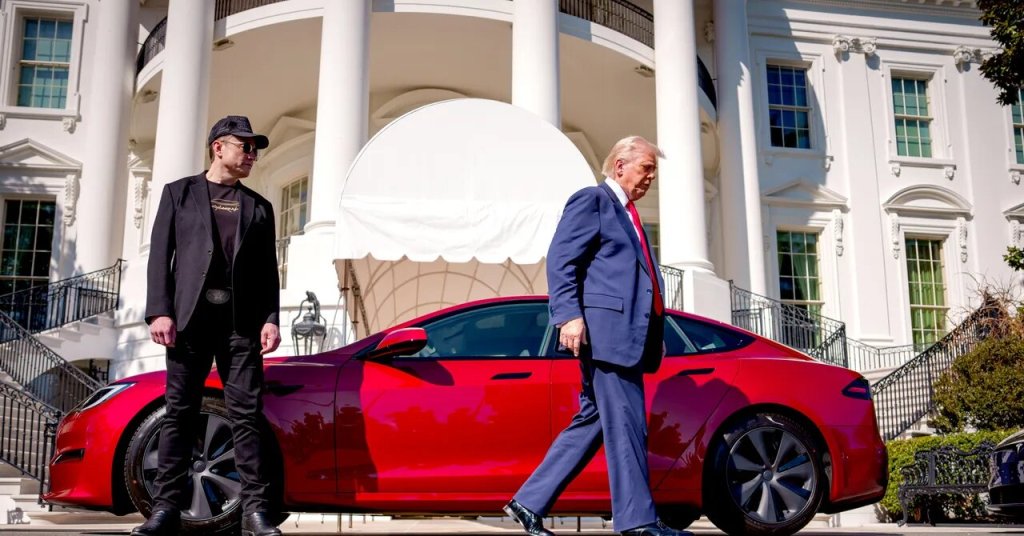On July 1, 2025, Tesla’s stock (TSLA) closed down 5.3%, dropping to $311.19 from $322.71 on June 27, 2025, after President Donald Trump called for a review of subsidies for Elon Musk’s companies.
In a Truth Social post, Trump claimed Musk receives “more subsidy than any human being in history” and suggested the Department of Government Efficiency (DOGE), which Musk led until late May, could save billions by cutting these funds. The threat targeted Tesla, SpaceX, and Starlink, all of which are heavily reliant on government contracts and policies. On July 1, 2025, Tesla shares continued to decline in after-hours trading, reflecting investor concerns.
The feud escalated as Trump accused Musk of opposing a tax and spending bill due to its elimination of EV subsidies, stating, “He’s upset that he’s losing his EV mandate”. Musk, who donated over $250 million to Trump’s 2024 campaign, responded on X, saying, “I am saying CUT IT ALL Now”.
The bill passed a Senate hurdle on June 28, 2025, cuts green energy support and adds to the federal deficit, prompting Musk’s renewed criticism. This follows a June clash that saw Tesla shares plummet 14%, erasing $152 billion in market value; however, they later rebounded by 11% by June 30, 2025.
Trump’s threat to review subsidies endangers Tesla’s EV tax credits, estimated to cost the company $1.2 billion annually, per JP Morgan. SpaceX, with $22 billion in federal contracts, faces risks to its NASA and Pentagon deals, including the role of Starlink in federal internet expansion.
Musk’s push against the bill, which he called “insane,” also targets its deficit impact, estimated at $2.3-$4.5 trillion. His call for a new “America Party” on X signals frustration with Republicans, risking further political fallout.
The renewed feud has spooked investors, with Tesla’s stock down 21% year-to-date, compounded by a 45% drop in EU sales. Analysts like Dennis Dick of Stock Trader Network warned, “Musk needs Trump. Trump does not need Musk,” noting potential U.S. sales declines if subsidies end. The Transportation Department’s role in regulating Tesla’s robotaxi project, currently in testing, adds further risk.


